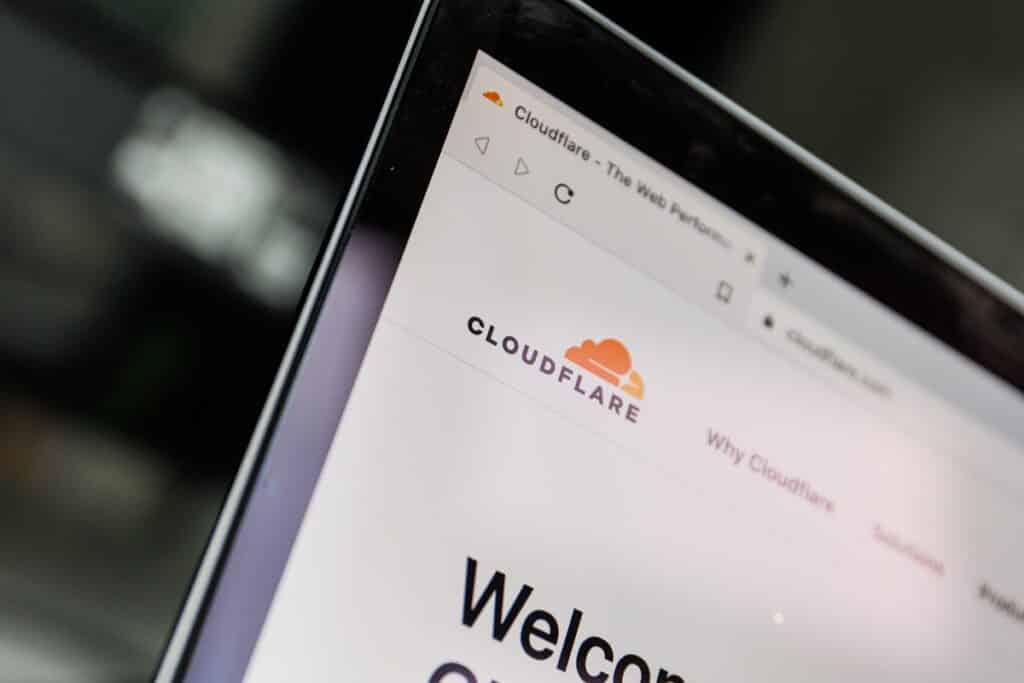Once again, football broadcasting rights seem to outweigh the fundamental principles of the open internet. Movistar and O2 have blocked access to numerous Cloudflare IP addresses, disrupting thousands of legitimate websites and online services. While the intended target may be illegal streaming platforms, the indiscriminate nature of this action is causing collateral damage to businesses, developers, and everyday users who have nothing to do with piracy.
This blunt and excessive measure raises serious concerns about net neutrality in Spain, as well as the decision-making process of major ISPs when implementing restrictions. Meanwhile, Movistar and O2 customers are left with broken access to critical online services, with no clear explanation or alternatives provided.
Cloudflare in the Crosshairs: A Misguided Blockade
The issue started in early February when Movistar and O2 users began reporting inaccessibility to key services like GitHub, Vercel, and Microsoft. Further investigation revealed that Movistar had blocked specific Cloudflare IP addresses, effectively shutting down access to thousands of websites that rely on Cloudflare’s CDN (Content Delivery Network) for security and performance.
Unlike other ISPs such as Orange and Vodafone, which have applied more selective blocking, Movistar has taken a scorched-earth approach—blocking entire IP addresses instead of filtering only the problematic sites. The result? A massive, indiscriminate shutdown that disrupts the internet far beyond its intended target.
This is akin to demolishing an entire apartment building just because one resident is suspected of illegal activity.
Football Rights Continue to Dictate Internet Access
The primary motivation behind these blocks appears to be pressure from LaLiga and other rights holders to prevent unauthorized football broadcasts. However, what should be a narrow and precise enforcement effort has instead become a widespread attack on internet neutrality and user rights.
This raises critical questions about the role of ISPs in content censorship:
- Not everyone watches football: A majority of internet users in Spain do not subscribe to football streaming services, yet everyone is suffering the consequences of these drastic actions.
- The blockade is ineffective: Pirate websites can quickly switch IPs, while legitimate businesses and services suffer unintended disruptions.
- A dangerous precedent: Today, Cloudflare is being blocked over football; tomorrow, other essential services could face similar censorship under vague justifications.
Instead of implementing precise and well-targeted measures, ISPs are resorting to blunt-force tactics that ultimately cause more harm than good.
The Pattern Repeats Whenever There’s a Match
The timing of these disruptions strongly suggests a connection to live football matches. The first wave of connectivity issues began on February 2, coinciding with a matchday, and reappeared on February 9, the same day LaLiga announced the shutdown of DuckVision, a streaming website whose IP was among the blocked addresses.
This is not a random technical failure—it is a deliberate and recurring disruption. Whenever there is a major football event, Movistar and O2 customers find themselves unable to access large parts of the internet.
Network analysis confirms that the blockade is highly selective. For example, when attempting to access Cloudflare IP 104.21.48.1, Movistar’s network drops the connection, while 104.21.48.2 remains accessible, proving this is not an accident but a calculated restriction.
Movistar’s Crude Response to Cloudflare’s ECH Implementation
One possible trigger for this aggressive blocking is Cloudflare’s recent activation of ECH (Encrypted Client Hello), an encryption protocol that prevents ISPs from seeing which specific websites users visit within Cloudflare’s network. This means ISPs can no longer selectively block only illegal streaming sites—they would have to block entire IPs to enforce restrictions.
Instead of finding a smarter technical solution, Movistar chose the lazy and heavy-handed approach: blocking entire Cloudflare ranges indiscriminately. This move not only disrupts businesses and developers but also highlights a lack of technical sophistication on the ISP’s part.
While other countries implement more nuanced and effective filtering, Spain continues to rely on outdated and excessive censorship tactics.
Users Seek Workarounds While Movistar Remains Silent
Faced with widespread disruption and no response from Movistar or O2, affected users have had to resort to alternative solutions to restore access:
- Using VPNs: Routing traffic through a VPN bypasses the ISP’s restrictions.
- Changing DNS settings: Switching to Cloudflare’s (1.1.1.1) or Google’s (8.8.8.8) DNS servers can sometimes help.
- Using proxy services: Cloudflare’s Warp and similar tools provide alternative ways to reach blocked content.
While these workarounds might help individual users, they do nothing for businesses and services that rely on Cloudflare to function. Meanwhile, Movistar has yet to offer any explanation beyond vague acknowledgments of an “incident.”
How Much Longer Will Movistar Prioritize Football Over the Internet?
Movistar and O2’s decision to block Cloudflare without warning or justification is a direct attack on net neutrality. Internet access should not be dictated by private corporate interests, nor should ISPs have the unchecked power to restrict access on such a massive scale.
Spain cannot afford to keep implementing medieval internet policies while the rest of the world adopts smarter and more balanced approaches. Movistar must be held accountable for these actions and ensure that its customers can access the web freely and without arbitrary restrictions.
Football may be a billion-dollar industry, but the internet is an essential global infrastructure. If ISPs continue to prioritize corporate profits over digital rights, we may soon find ourselves in a world where access to information is at the mercy of whoever pays the most.
Source: Banda Ancha y Revista Cloud

